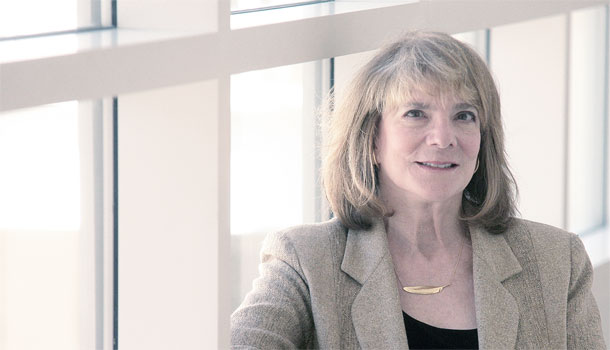
Elizabeth Loftus
Social ecology, law and cognitive psychology
Irvine
Elizabeth Loftus is an expert on nothing. Specifically, she studies events that never happened and evidence that never existed, yet somehow has etched a vivid memory.
Loftus, Distinguished Professor of social ecology and professor of law and cognitive science at UC Irvine, has shown since the early 1970s how people can be coaxed through suggestion into altering their own memories, often unintentionally by police questioning.
By her estimate, Loftus has testified in more than 250 often contentious legal cases and consulted on many others, including those of Ted Bundy, Martha Stewart, O.J. Simpson, Michael Jackson, Oliver North, Lewis Libby and the Oklahoma City bombing. She also led the way in debunking so-called repressed memories of sexual abuse. She also studies whether false memories can have positive impacts, like improving eating habits.
Earlier this year, Loftus received the Scientific Freedom and Responsibility Award from the American Association for the Advancement of Science for "the profound impact that her pioneering research on human memory has had on the administration of justice in the United States and abroad."
Question:
What would you say is your most important scientific contribution?
Answer:
I have spent my career studying the malleability of memory. I have documented all kinds of things about the conditions under which it happens, the types of people to which it happens. I have been involved in one of the most fundamental questions about the nature of human memory, and that is the question of whether once information makes it into our memory, is it there forever? Or is it destroyed or altered or changed in the process of living?
Question:
What does it mean to have a false memory?
Answer:
It is pretty easy to contaminate somebody’s memory. You could make somebody believe they saw a car go through a stop sign when it was really a yield sign or that they saw broken glass when there wasn’t any — all through suggestive and leading questions.
Later in my career, I began to wonder just how far you could go with people. Could you plant entirely false memories into the minds of people? And we devised a way of doing that. Getting people to believe that when they were a kid they got lost in a shopping mall for an extended time. That they were frightened, crying and ultimately rescued by an elderly person and reunited with the family. We created these false memories in the minds of people in order to study the process of developing what we now call “rich false memories.” We’re learning how people can develop entire memory for an event that did not happen.
Question:
If I asked you to implant a memory inside my head, what would be the easiest way to do that?
Answer:
Well, first of all I would have to catch you off-guard. I can’t just do it right here and now. You’re suspicious and you’re not going to buy it. I might have to wait a while and find you when you were not suspecting, not scrutinizing and when you were distracted by something else. And then I would just suggest something to you that wasn’t true.
Question:
Are people who are easy to hypnotize easier to implant memories into?
Answer:
It does look as if the highly hypnotizable people are more susceptible. And hypnosis is considered one of the problem techniques when it’s used to try to extract allegedly buried trauma memories, because in the process people have been led to develop false memories.
Question:
If you were a juror on a case, what would you look for?
Answer:
Every time I have shown up for jury duty I get kicked off — usually by the prosecution.
I’d want to know everything about the witness’ memory, particularly about any additional statements. I want to know how the statements have changed. I want to know any new information that the person whose memory is at issue was exposed to. Police reports, publicity, television, medical records, therapy records. Sometimes information from other people reveals that the key witness was exposed to contaminating information.
Question:
Contaminated information? It almost seems like the witness’ memory is similar to the crime scene itself.
Answer:
Well, right. It’s just like any other trace evidence. If you tromp on the DNA and contaminate it with other people’s bodily fluids, you effectively destroy the evidence. It’s the same thing with memory.
Question:
Have you ever thought that you were on the wrong side of a court case?
Answer:
I haven’t had a situation where somebody was freed and then went off to commit further crimes. In the one case that I am thinking about — it involved a man named Ted Bundy — he actually was convicted in the trial. He only committed further crimes after he escaped from jail.
Question:
And you were testifying on his behalf?
Answer:
I testified in his first trial in 1976. It was an aggravated kidnapping case in Utah. We didn’t really know about Ted Bundy back then. He hadn’t become the notorious person that we now know him to be. I sometimes wonder how I would have felt if he had been freed and then went on to commit the murders that he went on to commit. That would be very difficult for me. So, in a way I take a little bit of comfort in the fact that the judge convicted him at that time.
Question:
How can we then possibly trust any testimony?
Answer:
This is the one lesson that I’ve learned from all my years working on these problems. Just because a witness is confident and emotional and detailed doesn’t mean that this thing they are describing really happened. You really do need independent corroboration to really know that this memory is real or that the memory is false.